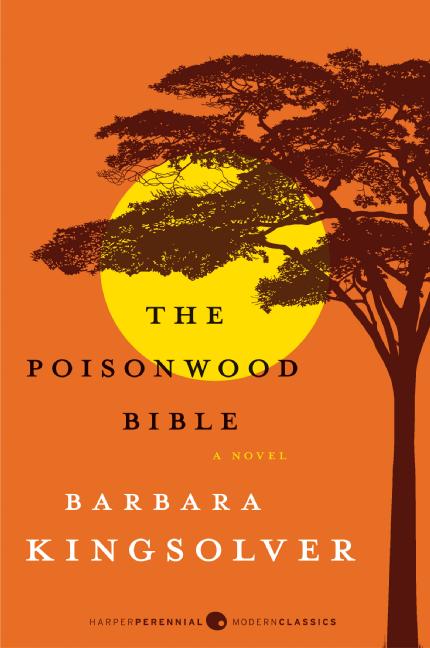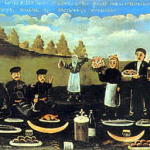 Greetings, readers. I’ve been in an Abbey with no wi-fi and no internet for 5 days. No mobile phone signal either.
Greetings, readers. I’ve been in an Abbey with no wi-fi and no internet for 5 days. No mobile phone signal either.
poustinia, retreats, and the ocean restoring the soul
Catherine Doherty, a friend of Thomas Merton, popularized the poustina monastic experience. A little cabin in the woods, where you went off to live simply and be with God.
Roy and I had an experiment of this when we joined a Christian community called Pacem in Terris in Minnesota, oh, I guess 19 years ago, for a brief retreat.
We lived in the snowy woods, in a simple pine heated cabin. The hosts brought us a simple breakfast and lunch in a basket—bread and cheese, as I remember, and we joined them for dinner.
We went to seek God. I remember reading that when one goes on retreat to seek God, the first thing you become aware of is your overwhelming tiredness. It’s okay then to spend the first day sleeping. You do not realize how tired you are until you give yourself permission to rest.
It astonishes me when we go away to rest and renew to discover how tired I really am. I woke late yesterday, prayed, wanted to study a bit of scripture, but instead felt sleepy, and napped. And I napped in the afternoon too, and briefly before dinner. What? Could I really have been that tired? All the adrenalin has drained out of me, and I am suddenly aware of the physical tiredness, and the sleep lag I have been keeping at bay with thermoses of green tea!!
I slept 12 hours last night. Roy is exhausted too. He sleeps when I do, around midnight, but then wakes the girls up at 7.15. After a whole term of this, he’s tired too.
I am really enjoying being in Lee Abbey. I sat in the sunroom of our cottage today, and watched Red Admiral and Painted Lady butterflies outside in the garden, then walked down to the beach, and sat on the rocks, relaxing.
Never miss a chance to go to the beach: That is one of my life’s resolutions.
Now playing family games–Anagrams, a Victorian word game. Word and knowledge games are my favourite, perhaps because I am not as patient and as good at strategy games as my family (everyone else is brilliant at chess, for instance).
I think going away for a few days gives one a change to take a break from one’s work, and see it in perspective, to have good family time and family bonding, and often to come back with new ideas, new energy, and new perspective on one’s life.
Lee Abbey has a private beach 250 metres from our cottage, and I love sitting on the rocks, and watching the tide come in.
tomorrow to hike on exmoor, amid the sheep, goats and ponies, and walk on some more beaches.
“Mum is Always Right!” or “Give and you shall receive”
Our family’s off to Lee Abbey, Devon
We’re off to Lee Abbey, Devon where we’ve rented a beach cottage for the week. No wifi, and if we can’t get 3G on the iPad, I guess I won’t blog.
(Images from Lee Abbey website)

 V
VAnd the beach cabin we are renting for the week.

Drunk on Grace
GET DRUNK ON GRACE
The Reformation was a time when men went blind, staggering drunk because they had discovered, in the dusty basement of late medievalism, a whole cellarful of fifteen-hundred-year-old, two-hundred-proof grace—of bottle after bottle of pure distillate of Scripture, one sip of which would convince anyone that God saves us single-handedly. The word of the gospel—after all those centuries of trying to lift yourself into heaven by worrying about perfection—suddenly turned out to be a flat announcement that the saved were home before they started…Grace has to be drunk straight: no water, no ice, and certainly no ginger ale; neither goodness, nor badness, nor flowers that bloom in the spring of super spirituality could be allowed to enter in.
-Robert Farrar Capon, Between Noon and Three: Romance, Law, and the Outrage of Grace
Image and post from The Buzzard Blog
Learning to Think “Young,” Flexibly and Accurately
When there’s controversy to do with politics, immigration, war, first world invasions of the third world, gay rights, women in the church, Palestine, Green issues, climate change, we see the same generational divide: passion on one side; indifference or passionately held, but entirely opposing views on the other.
I see the same in the Christian blogosphere. Some bloggers in their thirties really make me think. These include Rachel Held Evans, Donald Miller, Jamie, the Very Worst Missionary and Anne Marie Miller.
I deliberately read these bloggers who are a decade or so younger than I am because I want my thinking to remain flexible. I do not want my thinking to atrophy and grow flabby anymore more than I want my muscles to atrophy.
Of course, what matters is not thinking like a young radical or old fogey but thinking wisely and correctly.
And since I am a Christian, that would mean somehow overhearing or divining God’s thoughts.
* * *
When the generations fall into predictable positions–iconoclastic young radicals and crustacean old fogeys–one wonders if they are putting their minds on auto-pilot and reflexively adopting the positions of their generation.
However God is always young. He is, as Augustine describes him, “the beauty ever ancient and ever new.” His mercies are new every morning.
What’s more, He himself is new every morning. He is the Ancient of Days, but also blazingly modern. He dwells in the bush that blazes continuously and is never consumed.
He inhabits the present tense: I AM WHO I AM. And that became the name by which he was known: I AM.
And when he was incarnated, he was a fearless, outspoken young man who was murdered at 33.
What God thinks about the issues of our church and our day is guaranteed to be new and fresh, startling and challenging. High above our thoughts. Meaty.
Someone who spends enough time with God to feel his pulse and his heartbeat will think young, will become one of those old people with sparkling fresh eyes and a spring in their step.
And spending time with God is one way to bring the new, startling and challenging–so coveted by artists!– into our work.
* * *
I began this post thinking I did not want my thinking to degenerate into predictable generational positions.
But really what is important is that I spend enough time with the great I AM to divine his thoughts, to feel his heartbeat, to sense what he thinks and feels and desires. To begin to see just a little bit with his eyes. And to express this in my work.
In that way, a blogger can exercise a sort of prophetic ministry. (Or, at the very least, will be original).
And it is better to embark on such a quest, and fail, then never to embark on it at all!
The Portrait of Dorian Gray, Oscar Wilde

Just watched this in the Oxford Playhouse, which for always carries a sense of deja vu, and memories of enchanted afternoons watching matinees there for £2.50 as a student. Inflation has disproportionately affected theatre tickets, alas…
The Poisonwood Bible by Barbara Kingsolver

Our family listened to Barbara Kingsolver’s The Poisonwood Bible on tape on our summer holiday, and were engrossed by it.
It’s the story of an American Baptist family, the Prices, who go out to the Congo to convert “the heathen.”
The father, Nathan, simple-minded and fanatical, is a prototypical “ugly American,” who scarily conflates the American way of doing things and the Christian way. Despite the remonstrances of the local help, he insists on planting his garden in the American way in the soil itself, instead of in the Congolese way, in ridges. The rain washes it all away.
For him, the be-all and end-all of religion is baptism by total immersion. This puts him at odds with the villagers, who are terrified of the river: crocodiles have eaten their children.
Nathan Price browbeats his wife into submission, by tongue-lashings and physical violence. She walks through the Congo in a daze, willing herself forward, one step at a time, dreaming of Georgia. And most of his four daughters, Rachel, Leah, Ada and Ruth-May, would rather be anywhere than in the Congo.
The essential wrongness of transporting unwilling children across the globe to share in their parents’ missionary endeavours is made blindingly obvious. Nothing, I think, can compensate for the trauma and disruption to your own children. They are your primary responsibility.
One of my favourite aphorisms is Mary McCarthy’s “Religion is only good for good people.” Poor Nathan Price is so determined to succeed at converting the Congolese that he is gradually alienated from his wife, his four daughters, the Congolese, of course, and ultimately his own sanity. A tragic anti-hero, he goes on in his own pig-headed way until the book’s searing close, blind to the anguish of those around him while his eyes are fixed on the prize, a converted Congolese village.
Fortunately, Kingsolver creates a foil–Brother Fowles, a non-dogmatic Yankee missionary who respects what there is to respect in Congolese traditions, and quietly helps the Congolese .
As he memorably says, repeatedly, “There are Christians, and Christians.”
The book is written in five voices, that of the five Price women, each of them linguistically differentiated. An epilogue catches up with them, twenty years later. Their characters have proved their destinies.
Barbara Kingsolver herself lived in the Congo as a child with her American parents. She says she has waited 30 years for the wisdom to write this book. And it’s a splendid one!
- « Previous Page
- 1
- …
- 117
- 118
- 119
- 120
- 121
- …
- 279
- Next Page »







